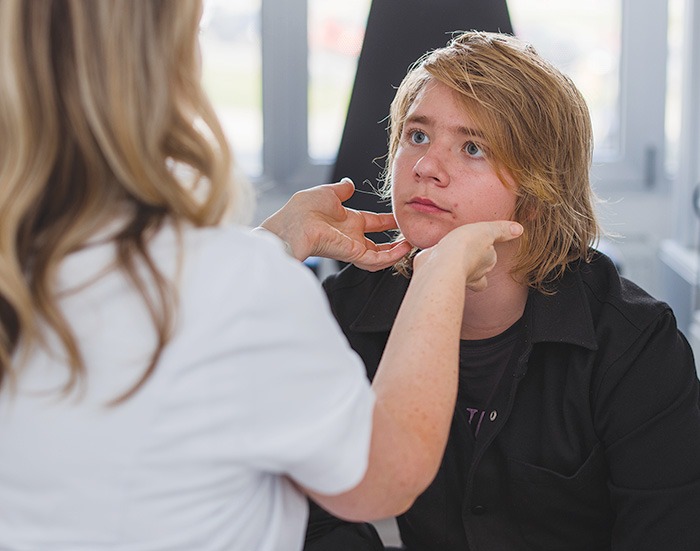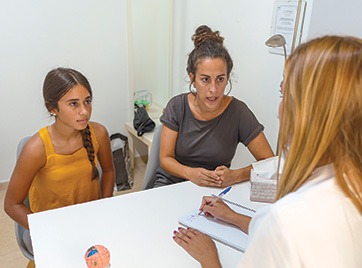The importance of finding mentors, practicing to your full potential and promoting women into leadership roles were just a few of the topics discussed during a lively Early Career Pharmacist (ECP) forum at PSA21 Virtual yesterday.
Seven ECPs, including Dr Sarah Dineen-Griffin, Hannah Knowles, Julian Soriano, Lily Pham, James Buckley, Samantha King and Deanna Mill, who chaired the session, shared what they have learnt during their careers so far.
It followed the launch of PSA’s new ECP Communities of Special Interest (CSI) Group, announced by PSA National President Associate Professor Chris Freeman that morning.
Despite their varied backgrounds and careers, all panelists agreed that connecting with colleagues was vital for personal and professional development.
‘We only get places by being able to connect with other people,’ Ms Knowles, a Senior Pharmacist at The Royal Brisbane and Women’s Hospital and PSA’s 2020 Queensland ECP of the Year, said.
‘It’s important to know you can have both official and unofficial mentors … You don’t want just one person – the more you can get to bounce ideas off is fantastic.’
Mr Buckley, a community pharmacist in the Noosa Hinterland on Queensland’s Sunshine Coast, said he liked to ‘think outside the box’ when it comes to who you can learn from.
‘If you see someone doing something you like, talk to them,’ he said. ‘We’re great at promoting pharmacy within pharmacy circles … but if you work in a multidisciplinary team, those team members can also help mentor you.’
For example, Mr Buckley has had ‘great mentoring’ from some of the general practitioners and nurses with whom he works.
‘They have different perspectives and views on things, so go and find those people,’ he added.
Truly inspiring discussions made by all panel members at the PSA ECP forum, especially being confident and leading by example for the next generation of pharmacists! #PSA21virtual (1/1) pic.twitter.com/TbClYJHftm
— Raymond Truong (@truryAdelaide) July 30, 2021
For those working in community pharmacy who don’t know where to start, Ms Mill recommended narrowing your focus.
‘What is it that you want to do? Do you want to improve diabetes management or provide aged care medication reviews? You need to work out what you want and reach out to those people,’ she said.
‘PSA is so well-placed and well-networked to be able to help you with that. If you’re an ECP, reach out to us and we’ll try to connect you with someone in your field of interest. It’s just a matter of asking.’
Promoting pharmacists’ full scope of practice
While mentors can help advance your career, the ECPs also discussed the need to continue advancing the profession as a whole, including promoting the recognition of pharmacists and the difference they can make to improving patient outcomes.
‘Until [pharmacists] are integrated and recognised as integral to our health system, and these changes are reflected in policy, our health system will not function at its full capacity,’ said Dr Dineen-Griffin, a lecturer at Charles Sturt University and Vice-President of PSA’s NSW Branch Committee.
‘Now, more than ever, [Australian pharmacists] really need to be working to their full scope of practice.’
ECPs are playing their part in this, Dr Dineen-Griffin said, with 1 in 5 PSA state and territory leadership positions now held by early career pharmacists.
‘The best thing we can do for the next generation is to keep pushing in this generation,’ Ms Mill said.
‘Those new and emerging roles, hopefully by the time the next generation get here, they’re established roles and it’s a no-brainer to have a pharmacist in every residential care facility, for example.’
This was 11/10 fun – I am so proud of the #ECP network and it was such a privilege to show case a snippet of our conversations 👏 See ya in the CSI discussion forum @JulianSoriano3 @HMKnowles @sarahdgriffin @lilypham_ Sam + James @PSA_National #psa21virtual https://t.co/nHUFBcJfyR
— Deanna Mill (@deanna_mill) July 30, 2021
Women in the workforce
Breaking down barriers for women in the profession is also important, particularly for those who are primary caregivers or trying to transition back to work after maternity leave.
Although women comprise 63% of the pharmacy workforce in Australia (a figure the International Pharmaceutical Federation predicts will increase globally to 72% by 2030) many still face hurdles relating to career progression.
‘While navigating a career and a family is challenging, having a baby or being a parent should not be a barrier to stepping into leadership positions,’ said Dr Dineen-Griffin, a new mother and member of the National Medicines Policy Review Committee (announced during PSA21 Virtual yesterday morning on behalf of Federal Minister for Health and Aged Care Greg Hunt).
‘It does not mean you cannot do the job, and it certainly does not mean that you cannot do the job well.’
For many pharmacists returning from paternity leave, a critical issue is having the current knowledge to operate effectively as a pharmacist, she said.
This has been magnified during the pandemic, with practice changes coming thick and fast.
While there are options available, such as accessing ‘keeping in touch’ days, which allow an employee on parental leave to come into the workplace, these aren’t always promoted.
‘As a profession, I think we really need to gain a greater or deeper understanding of the challenges women in pharmacy face at these critical points in their career,’ Dr Dineen-Griffin said.
‘My main message is let’s continue to talk about it. This shouldn’t be a taboo topic … There really is no better time for investing in our female pharmacy workforce.’



 Pharmacists have always prescribed, but they have the potential to prescribe much more
Pharmacists have always prescribed, but they have the potential to prescribe much more



 Sponsorship information
Sponsorship information


 Talking to patients who have questions
Talking to patients who have questions





